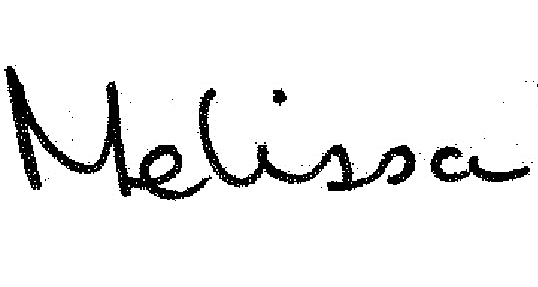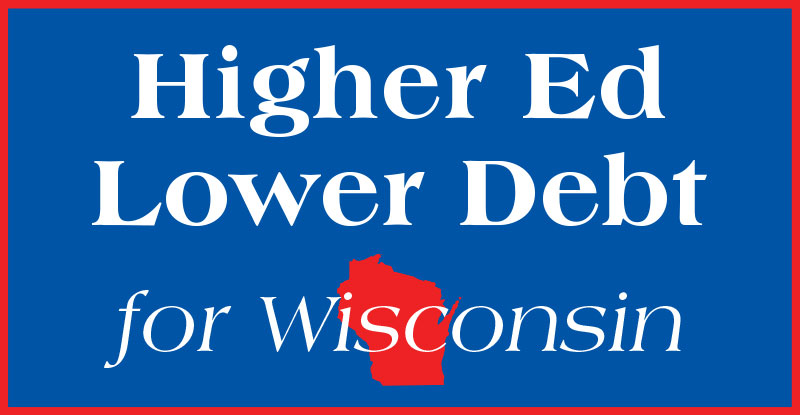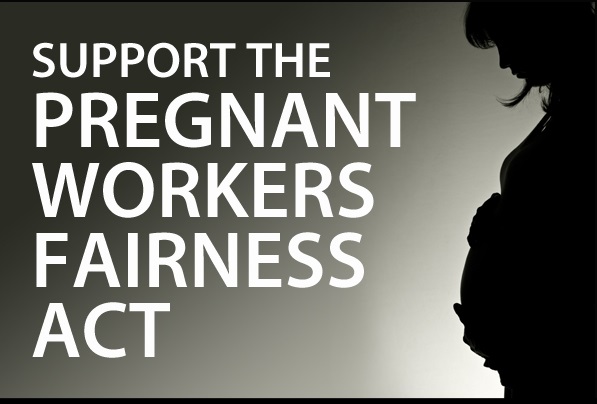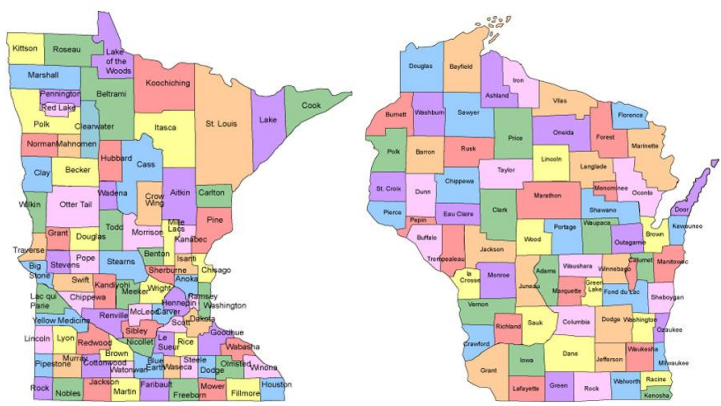
Friends and Neighbors,
Each day I walk into the Capitol I am proud to fight for our community and the state we love to call home. Often we see setbacks, such as the Governor's 'not-so-special' special session which will give citizens a mere $13 in tax relief, while ignoring our growing jobs crisis, and our struggling public schools. We see our neighbors to the west, Minnesota, surpassing us with more jobs and lower health care costs.
 However, my
colleagues and I continue to advocate for the
citizens of Wisconsin on the things that truly matter in
people's everyday lives. I am proud to co-sponsor the 'Higher
Ed, Lower Debt' bill which will give some much needed relief to
those who find themselves with high student loan debt and
significant monthly payments.
However, my
colleagues and I continue to advocate for the
citizens of Wisconsin on the things that truly matter in
people's everyday lives. I am proud to co-sponsor the 'Higher
Ed, Lower Debt' bill which will give some much needed relief to
those who find themselves with high student loan debt and
significant monthly payments. I also continue to work with Citizen Action and my fellow legislators to work to allow counties to accept the federal Medicaid expansion money which would ensure that our citizens continue to receive access to affordable health care.
As always, please contact my office if you have any items that you would like included in future issues of the Sargent Voice. 608-266-0960 or Rep.Sargent@legis.wi.gov.
Forward,

Property Tax Bill Offers Little Relief
|
The outcome of Gov. Walker’s
special session to ram through his $100 million property
tax cut is that the average Wisconsin property owner
will get a tax cut of just $13 this year and $20 next
year. I voted against this plan. |
|
Our plan would have done the following:
• Accept the federal Medicaid expansion outlined under the
Affordable Care Act, resulting in an addition of $119 million of
revenue and extending health care coverage to 92,000 people.
(Note: This plan would provide coverage and result in surplus
money for the state.)
• Use an alternative property tax mechanism targeted toward
middle-class homeowners that would provide the median value home
with $57 of additional savings over the governor’s plan while
spending the same amount of money.
• Index the Homestead Credit to inflation to ensure that our
most vulnerable citizens, who are often on fixed incomes, are
protected.
• Send $100 million to the state’s rainy day fund, buying down
the structural deficit facing the next Legislature (the state
would have faced a $672 million deficit under the Assembly
Democrats’ plan instead of a $725 million gap).
I believe that the Democrats' plan balanced the need to give tax
relief with the many other pressing needs facing our state.
I voted "no" on the Republican plan because it was an
ill-conceived, rushed bill that used an improper mechanism to
deliver help to our schools and property taxpayers. In no way
will this bill help pay for our schools, entice a Wisconsinite
to buy a home, or infuse money into our economy. In fact,
property owners in 82 school districts will see little to no
property tax relief under the GOP bill.
If we as a state are serious about tax policy reform, let's roll
up our sleeves and do it. The plan that passed was simply press
release politics. It may sound good on the evening news but
doesn’t do much at all for the middle class of our state.
In a time when our school districts are struggling to operate at
the same high standard that we have come to expect, this bill is
a slap in the face. At a time in which Wisconsin still lags
behind the rest of the Midwest in job creation, this was a
missed opportunity to invest in our work force.
I voted "no" because we need serious solutions to move Wisconsin
forward. The Assembly Democrats plan would have provided the tax
relief that Wisconsinites deserve, bolstered our rainy day fund,
and expand health care coverage. This would have been a win for
Wisconsin.
Instead, we have a tax cut that won’t even buy you your
Thanksgiving turkey.
Student Loan Bill - 'Higher
Ed, Lower Debt'
| Student debt is the only kind of household debt that continued to rise through the Great Recession, and is now the second largest consumer debt in our country, more than credit cards or auto loans. Having this money tied up in debt is a drain on our already struggling Wisconsin economy as the money spent on student loans could instead be spent on cars, new homes, and at local businesses in our communities. |
 |
Over the years, exponential increases in
tuition and fees coupled with challenging economic times have
made it nearly impossible for students to work their way through
school. While 45% of 1992-93 bachelor's degree graduates
borrowed money from the government, private loan providers, or
family, according to a recent U.S. Department of Education
survey, approximately two-thirds of 2007-08 bachelor's degree
graduates borrowed money from the government or private lenders
(family loans were not considered in this figure). In fact, the
U.S. recently surpassed $1 trillion in outstanding student
loans, with nearly 40 million Americans holding approximately
$1.2 trillion in student loan debt nationally, meaning the
average per person debt totals about $30,000.
According to the U.S. Federal Reserve System there are 753,000
Wisconsin residents with federal student loan debt. Further,
college tuition costs have doubled over the last 12 years and
Wisconsin's student loan borrowers have an average debt of
$22,400. It is estimated that Wisconsin residents paying student
loans from obtaining a bachelor's degree are currently paying an
average of $388 per month for about 18.7 years.
I am proud to be a co-sponsor of The Higher Ed, Lower Debt
bill--authored by Senator Dave Hansen and Representative Cory
Mason--which would do the following:
- Allow Wisconsin's student loan
borrowers to deduct their student loan payments from their
income tax, resulting in annual tax savings of approximately
$172 for the typical borrower or as much as $392.
- Enable Wisconsin's student loan
borrowers to refinance their student loans at lower interest
rates, putting potentially hundreds of dollars back in their
pockets and into Wisconsin's economy annually.
- Provide students and parents with
detailed information about student loans, the best and worst
private lenders, and ensure that students receive loan
counseling so that Wisconsin's student loan borrowers can
make informed financial decisions about student loans.
- Ensure data is collected and tracked about student loan debt in Wisconsin to help policymakers and the public better understand the depth and breadth of the debt crisis in our state.
This proposal will go a long way in
helping current and future student loan borrowers to realize
significant savings. While savings under the bill will vary
depending on an individual's debt load and the interest rates,
student loan borrowers will now have the option to deduct
student loans from their income tax and/or refinance their
student loans. Both of these options are currently very
challenging or impossible for many Wisconsinites under current
law.
According to the nonpartisan Legislative Fiscal Bureau, the
average borrower could see an income tax savings of
approximately $172 under the Higher Ed, Lower Debt bill's income
tax deduction. However, borrowers who are paying more per year
in student loan payments would see tax savings up to $392
annually.
Additionally, depending on interest rates, borrowers and their
families could take advantage of the ability to refinance their
student loans and realize further savings. For example, a
borrower with an interest rate of 6.8% and the average
University of Wisconsin graduate's loan debt of $27,000 who
could lower their interest rate to 4% could save over $40 per
month. That would put nearly $500 back in their family's pocket
over the course of a year.
This legislation offers common sense solutions for real savings
on behalf of Wisconsinites managing student loan debt. I hope to
see broad bi-partisan support for this legislation that will
have long-lasting positive effects on our economy and our state.
Wisconsin vs. Minnesota in Health Care Costs
|
While the Packers may have
displayed their dominance over Minnesota on the football
field this past Sunday, Minnesota is beating Wisconsin
in something more vital: health care costs. A new report released this week by Citizen Action of Wisconsin reveals health consumers in Wisconsin will pay on average a stunning 79 to 99 percent more for health insurance than their counterparts in Minnesota on the new marketplaces created by the Affordable Care Act. |
|
The gap is so
dramatic that one Minnesota lawmaker has even called for placing
billboards on the Minnesota/Wisconsin border touting his state’s
more affordable health insurance rates.
Even more importantly the report shows that two critical
decisions made by the Walker administration explain a
substantial portion of the rate disparity.
The fundamental difference between the two states is that
Minnesota has embraced the national health care reform law and
is using the tools it provides to deliver more affordable health
insurance, while the Walker administration has tried to
undermine the law at every turn.
Gov. Scott Walker’s decision to turn down enhanced federal
Medicaid dollars, and his administration's decision not to
implement more robust rate review, can explain a substantial
portion of the premium gap with Minnesota.
Walker’s decision to reject the Medicaid funding to strengthen
BadgerCare cost the state budget $119 million more to cover
fewer people. This report shows that forcing more low-income
Wisconsinites into the new marketplaces (also known as
exchanges) will also increase the health insurance premiums for
everyone else.
A recent Rand Corporation report estimated that states rejecting
enhanced federal Medicaid dollars will increase premiums from 8
to 10 percent by making the overall insurance pool less healthy
and therefore more costly. The reason is that lower-income
people are relatively less healthy, and low-income people with
health conditions are more motivated to enroll, pay higher
premiums and cost share. This means that insurance premiums on
the Wisconsin marketplace on a typical plan will cost an average
$207 more per year because the Walker rejected enhanced federal
BadgerCare dollars.
Another key difference is the two states’ dramatically different
approaches to rate review. An important provision of the
Affordable Care Act tasks state regulators with reviewing health
insurance premium rate increases to determine if they are
excessive.
Overall, the report concludes that Walker’s decision not to use
the tools made available by the national health care reform law
may cost Wisconsin consumers as much as $1,000 more per year in
health insurance premiums. This dwarfs the meager $13 tax
reduction Walker and his conservative allies are touting.
These numbers ought to shake up the health care debate in
Madison. Most Wisconsinites are tired of the consistent effort
to sabotage health care reform. Few doubt that access to quality
affordable health insurance is not a luxury, but is
indispensable to the opportunity to thrive, prosper and achieve
the American dream in the 21st century. Shockingly higher
premiums ought to be a clarion call for lawmakers to put aside
the ideological divisions that have plagued the health care
debate, and work cooperatively to secure the full benefits of
national health care reform for Wisconsin.
Frac Sand Mining Bill Attacks Local Control
|
A bill to restrict the ability of
local communities to regulate Wisconsin’s frac sand
industry had a public hearing in the state senate last
week. |
 |
Under this type of mining, companies
mine highly desirable sand for oil and natural gas producers.
The particles are used in a process known as hydraulic
fracturing, or "fracking," where sand, chemicals and water are
injected underground at high pressure to extract oil or natural
gas that had been too difficult to remove.
The mines require large-scale excavation and industrial-size
processing. They also create increased truck and rail traffic.
As the sand industry has grown, some local units of government
have placed restrictions on projects, such as setting standards
for operations, making new requirements for environmental
monitoring and imposing stiff costs for road repair.
We all want to know that the air we breathe and the water that
comes out of our wells is safe for our families, crops and
livestock. Wisconsin has a rich history of protecting our health
by bringing industry, regulators and citizens to the table to
use science and the rule of law to come to an agreement about
how to properly implement and enforce laws that protect our air
and water. Mining companies excavate rock with asbestos
minerals, process frac sand and create carcinogenic dust, or use
high-capacity wells to pump tens of thousands of gallons of
groundwater for irrigation of our state’s largest industrial
farms without considering the effects on our citizens.
Eliminating the power of local elected officials to protect
their community’s air and water takes away the influence the
public has over whether they have a safe and clean environment.
Tying the hands of local government – who have increasingly
taken on responsibilities that our Department of Natural
Resources can’t or won’t – weakens not just our natural
resources, but our public health and our democracy.
More public input is needed in all areas where the effects of
decisions will be directly felt by the people living around the
mines. We cannot let business interests trump the health and
well-being of the people of Wisconsin.
While the bill is moving through the state senate, Assembly
Speaker Robin Vos said earlier this week he is not planning to
hold a vote until the spring, at the earliest.
Pregnant Workers Fairness Act
Introduced
|
I am proud to be a co-author of The "Pregnant Workers
Fairness Act" which was introduced last week by
Representative Eric Genrich (D-Green Bay). Federal law already bans employers from firing or refusing to hire a  pregnant woman. But it does not regulate treatment of
women who become pregnant while on the job. This can be
a big issue, especially if a woman has a physically
demanding job.
pregnant woman. But it does not regulate treatment of
women who become pregnant while on the job. This can be
a big issue, especially if a woman has a physically
demanding job.The bill would require employers to make provisions so a woman could continue to work. It would also expose employers to legal action, within reason. There is a provision in the bill that allows employers to be exempt if they can prove that these accommodations would cause an undue hardship on their business which mirrors provisions in current federal law on pregnancy discrimination, and also mirrors state law on some discrimination statutes. This bill is a wonderful first step towards ensuring that pregnant women are not discriminated in the workplace. |
If you would like to have your name removed from this email list, please reply to this message with “Unsubscribe” in the subject line.
October 29, 2013
Issue 20
Contact Me
State Capitol
P.O. Box 8953
Madison, WI 53708
Office: (608) 266-0960
Email:
Rep.Sargent@legis.wi.gov
On the Web: sargent.assembly.wi.gov
Stat of the Week
Data from the Department
of Public Instruction shows that 79% of students who
received vouchers in Wisconsin did not attend a
Wisconsin public school last year. Your tax money should
not go to subsidize tuition for families already able to
afford private schools.
|
|
In the Capitol
|
Bills of interest:
|
In the District
|
Learn About Social
Networking and Identity Theft
5¢ Bingo |
District Outreach
|
Team Sargent did a little math and added up our outreach in
district. I knew we were pounding the pavement but was shocked when the numbers added up to more than 8,250 doors in the last 3 months. Great conversations. Great neighborhoods. Great people. It is my honor to represent the 48th Assembly District. |
Halloween Safety Tips
|
WI gets good marks for Dental Health
|
From our friends at
the Wisconsin Dental Association A new Oral Health America report gives Wisconsin a score of 85 out of 100 and ranks our state fifth in the nation in terms of seniors’ oral health. While Wisconsin is doing a good job, we must continue to reduce barriers to oral health care for our state's most vulnerable residents. For example, the state could pursue reimbursing all dental Medicaid providers their costs. Currently, government reimburses Federally Qualified Health Centers their full costs, but other dental providers are paid considerably below the cost of care. Engaging all providers will increase access for those most in need. WDA Healthy Choices proposals also include student loan forgiveness and grants programs to encourage dentists to settle in underserved areas.  |
10 Ways to Enjoy More Fruits and Vegetables
|
Provided to you by the Academy of
Nutrition and Dietetics Building a healthy plate is easy when you make half your plate fruits and vegetables. It's also a great way to add color, flavor and texture plus vitamins, minerals and fiber. All this is packed in fruits and vegetables that are low in calories and fat. Make 2 cups of fruit and 2.5 cups of vegetables your daily goal. Try the following tips to enjoy more fruits and vegetables every day. 1. Mix up a breakfast smoothie made with low-fat milk, frozen strawberries and a banana. 2. Try crunchy vegetables instead of chips with your favorite low-fat salad dressing for dipping. 3. Add color to salads with baby carrots, grape tomatoes, spinach leaves or mandarin oranges. 4. Keep cut vegetables handy for mid-afternoon snacks, side dishes, lunch box additions or a quick nibble while waiting for dinner. Ready-to-eat favorites: red, green, or yellow peppers, broccoli or cauliflower, carrots, celery sticks, cucumbers, snap peas or whole radishes. 5. Keep a bowl of fresh, just ripe whole fruit in the center of your kitchen or dining table for a quick on-the-go snack. 6. Wake up to fruit. Make a habit of adding fruit to your morning oatmeal, cereal, or yogurt. 7. Stock your freezer with frozen vegetables to steam or stir-fry for a quick side dish. 8. Make your main dish a salad of dark, leafy greens and other colorful vegetables. Add chickpeas or edamame (fresh soy beans). 9. Variety abounds when using vegetables as pizza topping. Try broccoli, spinach, green peppers, tomatoes, mushrooms, and zucchini. 10. Make a veggie wrap with roasted vegetables and low-fat cheese rolled in a whole wheat tortilla.  |
Congrats to Virent!
|
Virent won third place and a $15,000 prize in the Emerging Innovation Award competition presented Wednesday by Securing America's Future Energy (SAFE), a nonpartisan, Washington, D.C. organization whose goal is to reduce U.S. dependence on oil. Madison-based Virent has developed technology used to turn plant sugars into various types of fuel as well as chemicals used for plastics. |
|

